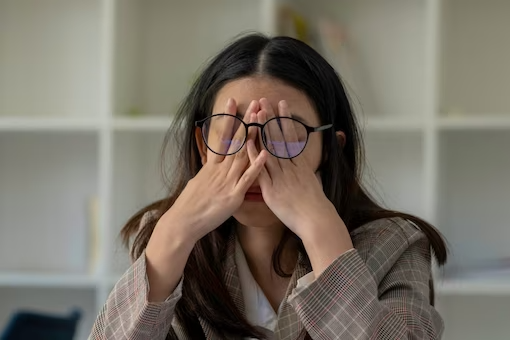Daytime drowsiness is something everyone has experienced at least once. Whether you’re in school, college, the office, or at home, that sudden onset of sleepiness can be almost overpowering. As a result, you might have wondered why you feel so sleepy after lunch. The answer is twofold. Certain food ingredients may have a slight effect on drowsiness. Though feeling drowsy after lunch may be more related to a normal passage of the circadian rhythm, which is our body’s internal clock.
In this article, let’s learn more about why we feel sleepy post-lunch.
What are the reasons for feeling sleepy in the afternoon?
Sleepiness after lunch has less to do with the food you eat and more to do with when your body naturally wants to sleep. There are two phenomena that cause this.
- Sleep Pressure: Adenosine, a hormone found in the brain, gradually builds up the longer we are awake. While this hormone is at its maximum level just before bedtime, it is also higher in the afternoon than in the morning. The more adenosine present in your body, the more you will want to sleep.
- Circadian rhythm: The circadian rhythm is the second process that indirectly causes tiredness. Similar to a clock, the circadian rhythm regulates when we are awake and asleep. It changes throughout the day to maintain your alertness by controlling the production of hormones and other processes in the body.
With most of us waking up about 7-9 hours before our lunchtime, we experience a heightened amount of adenosine and a slight dip in the circadian rhythm around lunch. These changes present themselves as us becoming drowsy or tired.
If you are feeling drowsy or lethargic post-lunch, here are a few tips that you could follow.
- Take a walk post lunch: After eating, do not immediately return to work. You should instead take a quick walk around the building or use the stairs. This quick exercise can help to raise your blood’s oxygen content and give you more energy.
- Drink water: Fatigue, melancholy, and difficulty concentrating are all symptoms of dehydration. Try to consume enough water throughout the day. Replenish your body with some fluid to prevent the post-lunch slump.
- Know portion control: Overeating can quickly result in sluggishness because it slows down digestion and makes you feel bloated. To avoid feeling sleepy and lethargic and to further control blood sugar levels, opt to eat short meals in between.
- Keep track of meals: Maintaining track of your lunchtime meals is crucial. It is best to discover the meal that is making you feel sleepy and lethargic, cut back on your intake right away, and replace it with something else that can keep your energy levels high.


